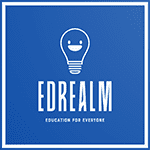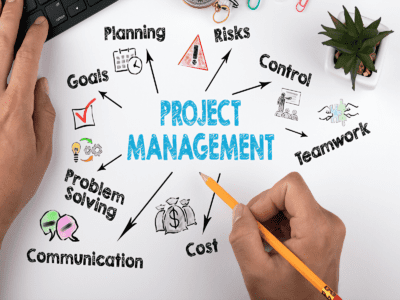
Overview
GENERAL INFORMATION
About the course: This course is intended for those who will have their first experience in working with Agile flexible methodologies – Scrum, Kanban, Scrumban.
Agile project management is an approach to teamwork that emphasizes product and collaboration rather than documents and rigid rules. These agile methods have become key to successful project management, have been successfully demonstrated by companies such as Toyota and Google, and are now widely used by leading IT companies. They allow you to effectively determine priorities, estimate deadlines and reduce risks when managing a product or project.
Agile is based on the Agile Manifesto, which states:
- People are more important than processes.
- Product is more important than documents.
- Customer interaction is more important than negotiations.
- The ability to change is more important than following a plan.
How Agile can help you:
- Fast entry to the market with a competitive product.
- Acceleration of innovation processes in the company.
- Reducing the number of projects refusals.
- Increasing transparency of processes in the project, more effective communication.
- Improving interaction with stakeholders and increasing their satisfaction.
- Effective management of uncertainties and changes on the project.
- Higher work quality and productivity.
- Engaged and satisfied employees.
Program: The course training program is designed for people who want to master Agile, as well as for managers whose activities involve project work based on flexible methodology.
Course Objective: Formation of knowledge, theoretical and practical skills in the effective implementation of Agile.
Skills gained during the course:
- General understanding of traditional project management approach
- Understanding the problems and shortcomings of the traditional project management approach
- Understanding of Agile approach
- Understand the Agile Manifesto, its values and principles
- Understand iterative and incremental approaches
- Understanding and use of Agile methodologies such as Scrum and Kanban
- Scrum values
- “Three pillars” of Scrum
- Understanding the roles in a Scrum Team
- Understanding the life cycle in Scrum
- Understanding ceremonies in Scrum
- Understanding of project management software products
- Understanding and ability to work with artifacts in Scrum:
- Product Backlog
- Sprint Backlog
- Increment
- Roadmap
- Epics
- User Stories
- Understanding the acceptance criteria for User Stories
- Understanding the Definition of Done
- Understanding the Definition of Ready
- Understanding and ability to evaluate User Stories
- Understanding team performance:
- Team Capacity
- Team Velocity
- Working with the Scrum Board
- Understanding and working with reporting tools:
- Burn-Down Chart
- Burn-Up Chart
- Velocity Chart
- Understanding of Kanban methodology
- Understanding of the Scrumban methodology
- Understanding the Agile structure at Spotify
- Certification possibilities
Course format: Online or offline. The course consists of lectures, presentations, practical exercises and test assignments.
Knowledge assessment: Tests close to the real tests for PSM certification at www.scrum.org website.
Preliminary requirements for students:
- B1 (Intermediate English). Since the main literature about the course is mainly available in English, as well as the certification exams for which the student can begin to prepare independently after completing this course, also in English, the student must understand the essence of the questions on a variety of topics.
Examples of texts for understanding and translation:
The CEO asks the Developers to add a “very important” item to a Sprint that is in progress. What should the Developers do?
(Choose the best answer)
Who should know the most about the progress toward a business objective or a release, and be able to explain the alternatives most clearly?
- Basic knowledge of IT technology at the level of the IT Essentials course.
Course Features
- Lectures 4
- Quizzes 1
- Duration 6 hours
- Skill level Beginner
- Language English, Russian, Azerbaijani
- Students 30
- Certificate Yes
- Assessments Self
Curriculum
Curriculum
- 2 Sections
- 4 Lessons
- Lifetime
- Module 1.What are Waterfall and Agile? Advantages. Agile values and principles. Agile methodologies. What is Scrum? Roles and ceremonies in Scrum.2
- 1.0What is Waterfall? What is Agile? History of Agile. Agile Manifesto. The 4 values of Agile. 12 principles of Agile. Companies using Agile. Agile methodologies.90 Minutes
- 1.1What is Scrum? Scrum values. “Three pillars” of Scrum. Minimum Viable Product (MPV). Team and roles in Scrum. Life cycle in Scrum. Ceremonies in Scrum.90 Minutes
- Module 2.Software products for project management. Artifacts in Scrum. Planning and estimating in Sprint. Performance and reporting. Kanban. Scrumban. Agile structure at Spotify. Certification opportunities.3
- 2.0Project management software products. Artifacts in Scrum. Definition of Done. Definition of Ready. The importance of Sprint planning. Estimation and Story Points.90 Minutes
- 2.1Team performance. Scrum Board. Reporting tools. Kanban methodology. Scrumban methodology. Scrum vs Kanban vs Scrumban. Agile structure at Spotify. Certification opportunities.90 Minutes
- 2.2Agile Foundation Quiz15 Questions
Instructor
Reviews
Requirements
- B1 (Intermediate English)
- Basic knowledge of IT technology at the level of the IT Essentials course
Features
- Course format: Online or offline. The course consists of lectures, presentations, practical exercises and test assignments.
Target audiences
- Individuals who want to master Agile, as well as for managers whose activities involve project work based on flexible methodology





